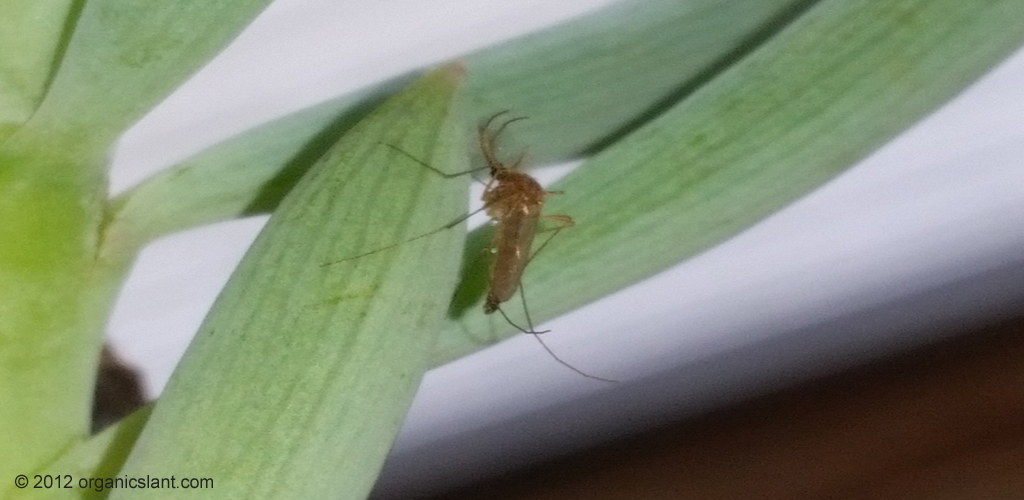Some studies show that catnip oil is as good as DEET in repelling mosquitoes.
Mosquitoes can be a nuisance when trying to enjoy the outdoors, especially if you’re trying to host guests. The faint buzzing reminds us of those pesky pricks we receive when we least expect it. Soon thereafter the itching and swelling begins as our bodies react to the foreign attack. Sometimes deadly, the mosquito bite is more of a nuisance than anything. The itch and swelling can last anywhere from a couple of days to a few weeks.
As with health, in order to avoid mosquito bites, we have to exercise prevention as a first step. This includes ridding our environment of many of the things that draw mosquitoes. Furthermore, rather than use some of the more commercial mosquito repellent varieties, which contain deet, (a deadly neotoxin) we should take advantage of the many safe alternatives that are easily available to us today.
Undiluted catnip oil can provide up to two hours of insect repellent properties when applied directly to the skin. Research in 2001 showed that catnip oil repels mosquitoes ten times better than DEET. Further research showed that depending on the species of mosquito, protection lasted for up to four hours. The active ingredient in catnip oil is called nepetalactone. It can cause skin irritations to those with sensitivities, so a patch test is recommended.
Essential oils such as clove, catnip and lemon oil prevent mosquito bites. These oils repel mosquitoes, along with citronella and patchouli. Commercial insect repellants contain many harmful ingredients, are irritating to the skin and the eyes, and are potentially damaging to the immune system; therefore, natural plant oils are a preferable source for insect repellants.
Ingredients in Common Insect Repellants
Common ingredients in insect repellants include Picaridin, IR3535, and N-diethyl-3-methylbenzamide, also known as DEET. DEET is absorbed through the skin, that is why it is important to avoid it.
New research shows that the insect-repelling chemical deet actually functions in the same way as deadly nerve gases and dangerous pesticides, by attacking the nervous systems of both insects and mammals.
“These findings question the safety of deet, particularly in combination with other chemicals,” said researcher Vincent Corbel of Institut de Recherche pour le Developpement in Montpellier.
The chemical known as deet (for N,N-diethyl-meta-toluamide) is found in nearly every commonly used mosquito repellent in the world, and eight billion doses have been applied since its introduction to the consumer market in 1957. The chemical was originally developed as an insect repellent by the U.S. Army in 1946, following experience with jungle warfare in World War II.
Toxic effects of DEET have been studied extensively in laboratory animals. Dermal exposure can produce dermatitis and mild erythema on the skin at the site of contact of animals. Most attention regarding DEET exposure has been directed toward assessing its potential for neurotoxicity. Depending on the exposure dose (generally very high) and species of laboratory animal tested, DEET has been shown to cause neurological and behavioral effects, including ataxia, locomotor impairment, restlessness, seizures, encephalopathy, respiratory distress, neurotoxicity, and even death.
Repelling mosquitoes naturally
Forget using commercial varieties of mosquito repellent. They not only affect our health, but they also leave a rather unpleasant scent on our skin. Fortunately, we can take advantage of numerous plant-based oils- – many of which do not require preparation. Many of these oils will need to be applied several times (every couple of hours) to be effective. Moreover, we will benefit from their pleasant aromas. Always ensure to mix and match the oils so that they deter mosquitoes much more effectively.
Some oils include:
– Citronella Oil
– Lemon Eucalyptus Oil
– Cinnamon Oil
– Castor Oil
– Rosemary Oil
– Lemongrass Oil
– Cedar Oil
– Peppermint Oil
– Clove Oil
– Geranium Oil
Use a natural insect repellent on skin like neem oil. It’s natural, non-toxic and goes a long way toward repelling not only mosquitoes but also other small, biting, flying insects. Neem has a strong odor, so testing it first is recommended.
It is important to ensure that the “natural products” we are using are made with 100% organic ingredients, as many conventional varieties produce products using plants that have been treated with pesticides. Furthermore, “natural” does not always mean safe. Essential oils are to be used sparingly – read the labels before applying.
Scorecard
DEET is a high volume chemical with production exceeding 1 million pounds annually in the U.S.
Tips & Warnings
- Researchers warn that pure catnip oil is too strong to put directly on skin. It is irratating to the skin and eyes.
- Patch test any area before it is applied.
Trade or Other Names
DEET is found in a variety of commercial insecticides. Trade names for products containing Deet include Autan, Delphene, Detamide, Deltamid, Flypel, m- Delphene, Meta-Delphene, Naugatuck Det, and Off.
According to the Cornell Cooperative Extention, there have been reports of seizures and neurotoxic symptoms related to the use of DEET. Accute: Skin irritation, rashes, blisters, and permanent scarring. Chronic: insomnia, mood disturbances and impaired cognitive function are also noted. DEET is especially dangerous for children.

 The Ultimate Detox Bath: Why Epsom Salt, Sea Salt, and Baking Soda Are a Game-Changer
The Ultimate Detox Bath: Why Epsom Salt, Sea Salt, and Baking Soda Are a Game-Changer Snap! Crackle! Pop! Electric bug zappers are useless for controlling mosquitoes
Snap! Crackle! Pop! Electric bug zappers are useless for controlling mosquitoes New clinical findings prove Burt’s Bees regimens effective across skin types
New clinical findings prove Burt’s Bees regimens effective across skin types How catnip makes the chemical that causes cats to go crazy
How catnip makes the chemical that causes cats to go crazy